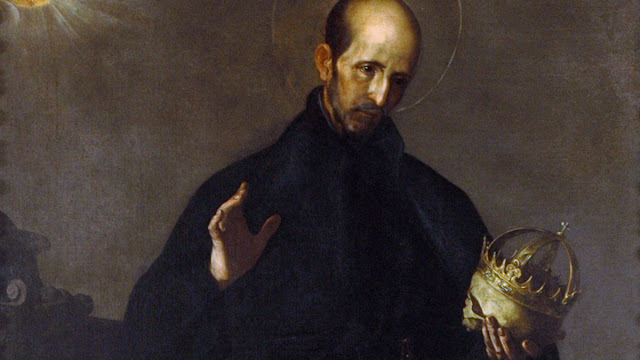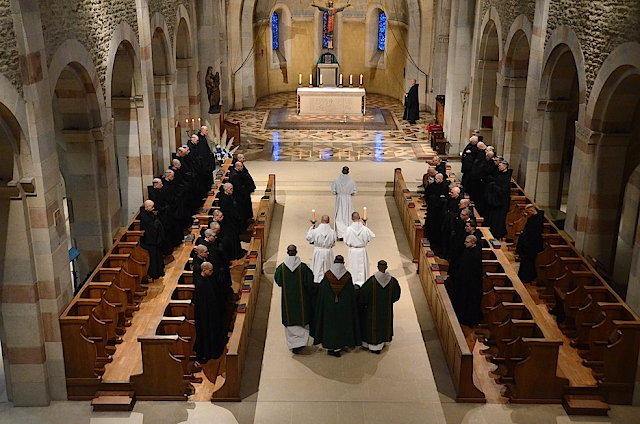Catholic devotions for the 10th October
Scroll down for today's
Saint of the DayReading of the Martyrology
Dedication of the Month
Dedication of the Day
Rosary
Five Wounds Rosary in Latin
Seven Sorrows Rosary in English
Latin Monastic Office
Reading of the Rule of Saint Benedict
Celebration of Mass
Reading from the School of Jesus Crucified
This Day, the Tenth Day of October
At Rome, blessed John Leonardi, confessor, founder of the Congregation of Clerks Regular of the Mother of God. He was illustrious by his labours and miracles, and through his instrumentality missions were established by the Propaganda.
In the island of Crete, blessed Pinytus, most noble among the bishops. He was bishop of Gnosia, and flourished under Marcus Antoninus Verus and Lucius Aurelius Commodus. He left in his writings, as in a mirror, a vivid delineation of himself.
At Cologne, in the persecution of Maximian, St. Gereon, martyr, with three hundred and eighteen others, who patiently bowed their necks to the sword for the true religion.
In the neighborhood of the same city, the holy martyrs Victor and his companions.
At Bonn, in Germany, the holy martyrs Cassius and Florentius, with many others.
At Nicomedia, the holy martyrs Eulampius, and his sister, the virgin Eulampia, who, hearing that her brother was tortured for Christ, rushed through the crowd, embraced him and became his companion. Both were cast into a caldron of boiling oil, but being quite uninjured, they terminated their martyrdom by decapitation with two hundred others, who, impressed by the miracle, had believed in Christ.
At York, in England, the holy bishop Paulinus, disciple of the blessed Pope Gregory. Being sent thither by that Pope with others to preach the Gospel, he converted king Edwin and his people to the faith of Christ.
At Piombino, in Tuscany, St. Cerbonius, bishop and confessor, who, as St. Gregory relates, was renowned for miracles, both during life and after death.
At Verona, another St. Cerbonius, bishop.
At Capua, St. Paulinus, bishop.
At Rome, St. Francis Borgia, Superior General of the Society of Jesus, celebrated for the austerity of his life, the gift of prayer, and for the firmness with which he renounced the dignities of the world, and refused those of the Church.
And elsewhere in divers places, many other holy martyrs, confessors, and holy virgins.
Omnes sancti Mártyres, oráte pro nobis. ("All ye Holy Martyrs, pray for us", from the Litaniae Sanctorum, the Litany of the Saints)
Response: Thanks be to God.
Abends, will ich schlafen gehn,
vierzehn Engel um mich stehn:
zwei zu meinen Häupten,
zwei zu meinen Füßen,
zwei zu meiner Rechten,
zwei zu meiner Linken,
zwei, die mich decken,
zwei, die mich wecken,
zwei, die mich weisen
zu Himmels Paradeisen!
When at night I go to sleep,
Fourteen angels watch do keep,
Two my head are guarding,
Two my feet are guiding;
Two upon my right hand,
Two upon my left hand.
Two who warmly cover
Two who o’er me hover,
Two to whom ’tis given
To guide my steps to heaven.














.jpeg)

Comments